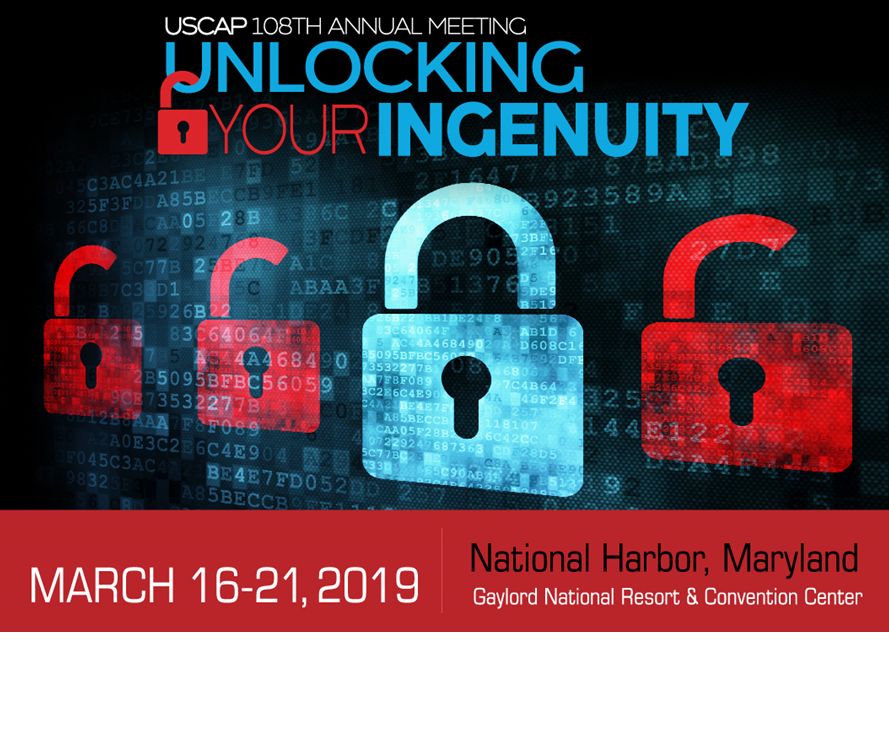

USCAP 108th Annual Meeting: ASCP & ASIP Joint Meeting
March 16, 2019 - March 21, 2019
Current and Future Revolution in Pathology Practice: (Focus on) Immuno-oncology and Cancer Epigenetics
ASIP/ASCP will bring together 4 speakers from across two unique disciplines of pathology to discuss the practice, science, and challenges of immuno-oncology and cancer epigenetics intended to inform and education residents, fellows, and practicing pathologists. The course will begin with a practical discussion of IO in current practice (Mamatha Chivukula, Sutter Health, CA) from the perspective of a community-based pathologist. This segment will review the current landscape of “companion diagnostics” in the immuno-oncology space including but not limited to treatment-specific biomarker assessment (PD-1), tumor mutational burden, sequencing, etc., with specific emphasis on treatment selection challenges, quality across the testing/reporting spectrum, pitfalls, and practical solutions. This will be followed up by a discussion of cutting-edge science in the IO space (Mike Milone, UPenn) with emphasis on those technologies and tools that are likely to move into clinical space soon. This same approach to cancer epigenetics (David Williams, UNC) will be revealed and discussed in the third presentation. Both of these cutting-edge talks will identify current and forthcoming basic and translational science in immuno-oncology and cancer epigenetics likely to generate immediate or future diagnostics. To finish off, a “future talk” focused on how cancer epigenetics will affect patient care and everyday diagnostics will be presented (I.M. Bennani-Baiti, President & CEO, Cancer Epigenetics Society). This portion will assess the implications for the practicing pathologist of current and future science in cancer epigenetics to daily practice and best patient care.
Course Learning Objectives
Upon completion of this educational activity, the learner will be able to:
- Review the current landscape of “companion diagnostics” in the immuno-oncology space including but not limited to treatment-specific biomarker assessment (PD-1), tumor mutational burden, sequencing, etc. with specific emphasis on treatment selection challenges, quality across the testing/reporting spectrum, pitfalls, and practical solutions
- Identify current and forthcoming basic and translational science in immuno-oncology and cancer epigenetics likely to generate immediate or future diagnostics
- Assess the implications for the practicing pathologist of current and future science in cancer epigenetics to daily practice and best patient care
SESSION CHAIRS
Danny Milner, MD, MSc, ASCP
PRESENTATIONS

ASCP

Mills-Peninsula Hospital, Sutter Health Affiliate

University of Pennsylvania Perelman School of Medicine

University of North Carolina at Chapel Hill

Cancer Epigenetics Society

